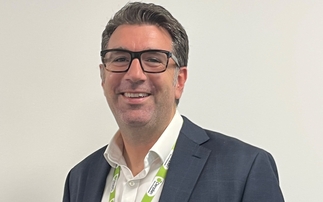With medical inflation continuing to rise apace, Owain Thomas finds a viable and increasingly popular alternative that fits tighter purse strings
The health cash plan market is often perceived as a quiet backwater, but it is seen by those already involved as a space for considerable future growth, particularly in the corporate paid arena.
With data from market analysts Laing and Buisson showing an increase of 73% in company-paid schemes over the last year, this might even persuade the 57% of advisers (see page 8 in COVER's Advance supplement) who have no interest in the arena to finally take the initiative, too.
As Howard Hughes, head of business marketing at Simplyhealth explained, the individual market may not offer significant returns for intermediaries, but the corporate world can prove very rewarding for just a little extra effort.
He said: "From an adviser's perspective, there's not much value in individual plans because commission tends to be about 10%. But when you're selling 200-300, its worth doing.
"I have this mythical 200-employee business where the top ten staff have private medical insurance (PMI) and advisers discuss that with them. But why aren't they discussing cash plans with the other 190 people?
"They are a fraction of the PMI cost and a lot of typical cash plan benefits can help get people back to work quicker with muscular-skeletal injuries and mental health problems."
Pushing on these rapid return to work benefits can prove useful when negotiating with directors and senior management to install a company paid plan, particularly with most providers offering products from about £1 per week per employee covered.
However, company budgets do not always stretch this far and the attractiveness of flex schemes based upon employee contributions are also proving increasingly attractive, but come with their own obstacles - something Hughes acknowledged.
He said: "We're putting a lot of money in going into the canteen and talking to people about the voluntary side. Unlike PMI, many people don't understand cash plans, so we need to explain it to somebody if they've not had one before."
The cash plan market is not afflicted with the high churn rates present in PMI - another positive for advisers and providers alike. Cash plans are also seeing organic growth in existing schemes, virgin business in the form of new groups and the potential for drop down business as the shock of PMI renewal premiums begin to hit home.
Phil Wood, marketing director at Health Shield, recognised many of these trends in the potential for good growth, revealing that the provider had seen its corporate paid membership grown significantly in one year. He also noted that while there were people new to the concept, those members familiar with the product were getting excellent use from it, with payout rates running at about 80p in the £1 - something employers liked to see.
He said: "If they pay for a scheme, they want us to prove employees have used it, that's why people are looking at this benefit, because it is something they can give to their staff and see them using. Certainly, it links with health and well-being and other areas, such as people visiting on-site for complimentary therapies or health screening.
"I still see very good growth in the company paid market, but you've got to keep an eye on the market because businesses are more actively engaged than ever and looking for help with health and well-being."
Part of this further engagement is driven by government policy and the potential upheaval in the NHS. Although this may not have been felt yet, with much of the cuts and structural changes still to be decided, it has not escaped the attention of insurers who suspect there will come a time when the public regards insurance as more necessary.
"With cash plans, we don't like to be a political animal because we cover people whether they go to an NHS or private hospital," Wood added.











